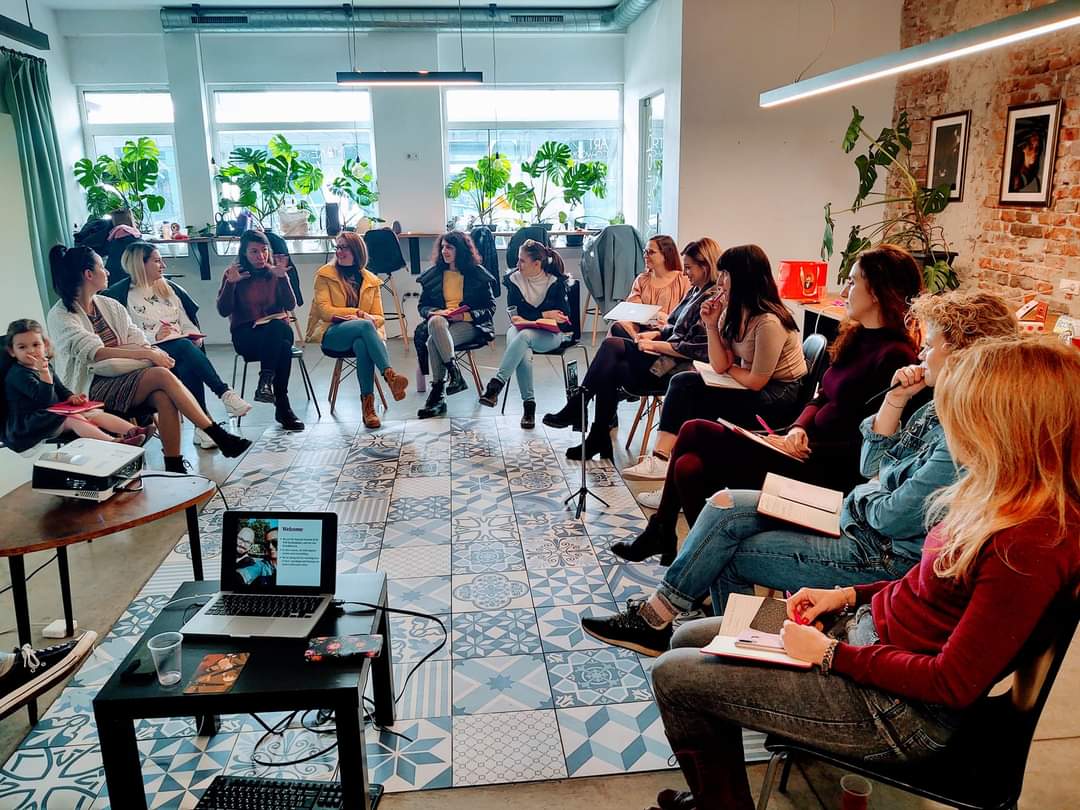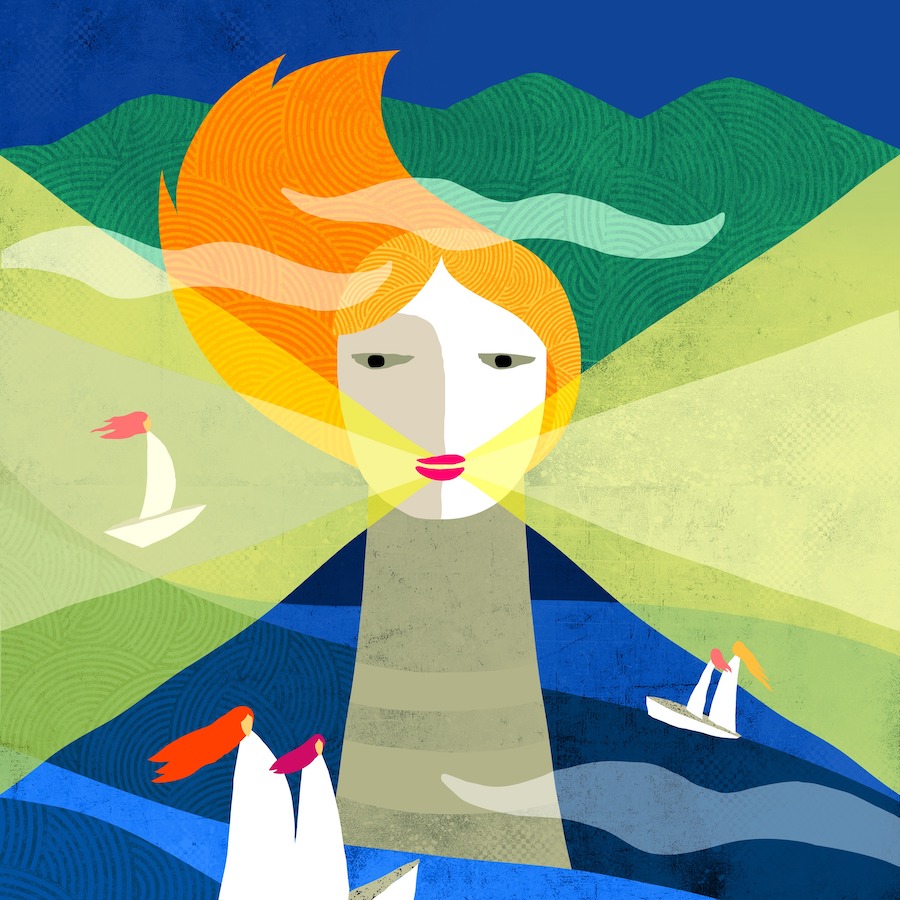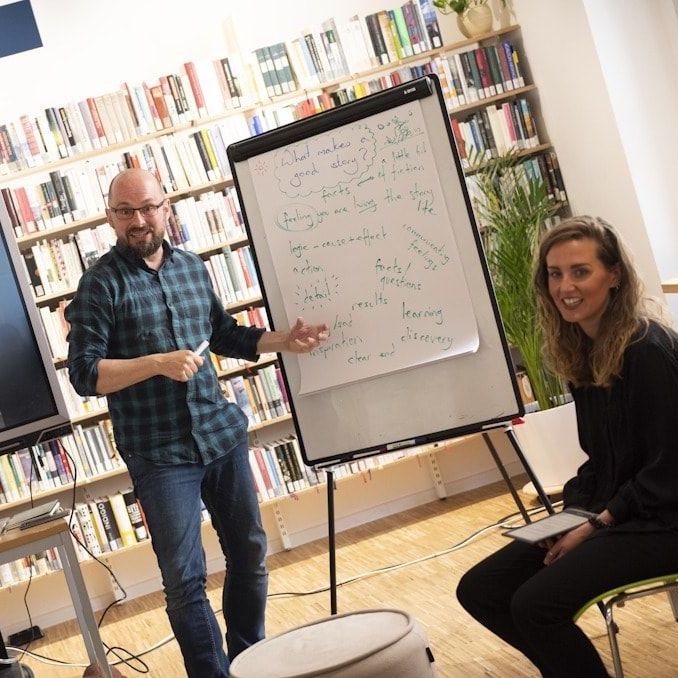Back in 2022, in a cosy room in the centre of Sofia, Bulgaria it was the beginning of a six-week creative writing course with a group of survivors of domestic abuse.
I was working with my collaborator Dr. Will Buckingham who I co-direct my Scotland-based social enterprise Wind&Bones. And this was our first project with the Emprove Foundation, a Bulgarian NGO dedicated to working with intersectional women survivors. The project was called “Awakening Between the Lines,” and we were working with a group of approximately fifteen women, exploring their stories.
As we set out a circle of chairs and arranged the pot plants, we chatted with Olia Mineva, the CEO of Emprove, about the upcoming workshop. Although Will and I spoke very little Bulgarian, Olia told us that the women spoke good English. We decided to invite participants to tell their stories in whatever language they were most comfortable, confident that between us all we could work with the challenges of storytelling in multiple languages.
Around ten o’clock, the women started to arrive. Some held small paper cups of coffee, some clutched notepads to their chests and one held the tiny, hot hand of her daughter. The women took their seats, and fell silent. I cleared my throat, said hello and we began.
As a writer myself, with a PhD in creative writing, who is also a survivor of domestic abuse and coercive control, I can personally testify to the power of writing as a tool of healing. And in Emprove and Olia, we had found the perfect collaborator. Emprove women survivors group is the first Bulgarian community of its kind, created by women who have managed to free themselves from emotional or physical abuse, for women who have embarked on change and shaping a new life. As soon as I sent Olia an email, pitching the idea of a writing course for survivors, she immediately replied and suggested we go for coffee. We talked excitedly about the power of storytelling to transform ourselves, our relationships and our lives, and by the time we’d finished our coffee, our collaboration was sealed. We secured funding from the British Embassy in Sofia, Olia assembled a team of women participants and some therapists to provide in-session support, and we were ready to begin.
We started not with writing, but with face-to-face conversation. Human beings are natural storytellers. We tell stories all the time, often without realising. We got the women talking about their experiences of everyday life, of their friends, the things they loved. We welcomed all kinds of stories, from stories of joy and happiness, to those that reflected the darker corners of their experiences, on the basis that the women with whom we were working were experts in their own lives and stories. Although we had a therapist on hand, her professional skills weren’t needed. Instead, she participated in the session activities herself.
By the time the writing started, there was no fear of the blank page. Each woman had a million stories to share, and the tools to share them. Our aim, at the end of the six weeks, was to create a series of micro-stories — short, precise glimpses of significant moments from the women’s lives. These stories were to be published on postcards, in both Bulgarian and English, accompanied by commissioned artworks from Bulgarian artists. And the project was going to culminate in an exhibition at the National Gallery of Bulgaria. Because the stories needed to be short enough to fit on the back of a postcard, we capped the length at a challenging eighty words.
We worked intensively for six weeks, sharing experiences, talking, writing and refining stories. For the final session, Will made cake, and Olia brought in Cava and soft drinks. We prepared a slide presentation to showcase these tiny, jewel-like stories, some of the women read, and together we celebrated our work.
But that wasn’t the end of it. After the workshops were finished, we worked on editing the English versions of the stories, and commissioned the poet Nadezhda Radulova to edit the Bulgarian versions, carefully cross-translating so they spoke powerfully in both Bulgarian and English. Meanwhile, Emprove worked with Bulgarian artist communities, publishers, and the National Gallery to produce the final exhibition and boxed set of story-cards.
The exhibition opened in May 2022. And now, three years later, as we look back at the photographs from the opening night, the women who participated in the project standing proudly by their stories and their artwork, we are reminded again of the power of storytelling and testimony. Because these are not just survivors. They are also writers and storytellers too. And they are agents for change in a world that desperately needs it.
For both Will and I, this project has also been an awakening of sorts, or a reawakening. It has reminded us again of the power of stories, wherever we are — in Bulgaria, in our multiple home towns of Dundee, Leicester, Tainan or elsewhere. And it has reminded us of how stories and storytelling build communities of trust and resilience, transforming us all.


